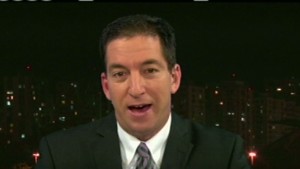Editor's note: Bruce Schneier is a security technologist and author of "Liars and Outliers: Enabling the Trust Society Needs to Thrive."
(CNN) -- The NSA has become too big and too powerful. What was supposed to be a single agency with a dual mission -- protecting the security of U.S. communications and eavesdropping on the communications of our enemies -- has become unbalanced in the post-Cold War, all-terrorism-all-the-time era.
Putting the U.S. Cyber Command, the military's cyberwar wing, in the same location and under the same commander, expanded the NSA's power. The result is an agency that prioritizes intelligence gathering over security, and that's increasingly putting us all at risk. It's time we thought about breaking up the National Security Agency.
Broadly speaking, three types of NSA surveillance programs were exposed by the documents released by Edward Snowden. And while the media tends to lump them together, understanding their differences is critical to understanding how to divide up the NSA's missions.
 Bruce Schneier
Bruce Schneier The first is targeted surveillance.
This is best illustrated by the work of the NSA's Tailored Access Operations (TAO) group, including its catalog of hardware and software "implants" designed to be surreptitiously installed onto the enemy's computers. This sort of thing represents the best of the NSA and is exactly what we want it to do. That the United States has these capabilities, as scary as they might be, is cause for gratification.
The second is bulk surveillance, the NSA's collection of everything it can obtain on every communications channel to which it can get access. This includes things such as the NSA's bulk collection of call records, location data, e-mail messages and text messages.
This is where the NSA overreaches: collecting data on innocent Americans either incidentally or deliberately, and data on foreign citizens indiscriminately. It doesn't make us any safer, and it is liable to be abused. Even the director of national intelligence, James Clapper, acknowledged that the collection and storage of data was kept a secret for too long.
 Sen. Paul: NSA lawsuit not a stunt
Sen. Paul: NSA lawsuit not a stunt  Greenwald: I will definitely come back
Greenwald: I will definitely come back The third is the deliberate sabotaging of security. The primary example we have of this is the NSA's BULLRUN program, which tries to "insert vulnerabilities into commercial encryption systems, IT systems, networks and endpoint communication devices." This is the worst of the NSA's excesses, because it destroys our trust in the Internet, weakens the security all of us rely on and makes us more vulnerable to attackers worldwide.
That's the three: good, bad, very bad. Reorganizing the U.S. intelligence apparatus so it concentrates on our enemies requires breaking up the NSA along those functions.
First, TAO and its targeted surveillance mission should be moved under the control of U.S. Cyber Command, and Cyber Command should be completely separated from the NSA. Actively attacking enemy networks is an offensive military operation, and should be part of an offensive military unit.
Whatever rules of engagement Cyber Command operates under should apply equally to active operations such as sabotaging the Natanz nuclear enrichment facility in Iran and hacking a Belgian telephone company. If we're going to attack the infrastructure of a foreign nation, let it be a clear military operation.
Second, all surveillance of Americans should be moved to the FBI.
The FBI is charged with counterterrorism in the United States, and it needs to play that role. Any operations focused against U.S. citizens need to be subject to U.S. law, and the FBI is the best place to apply that law. That the NSA can, in the view of many, do an end-run around congressional oversight, legal due process and domestic laws is an affront to our Constitution and a danger to our society. The NSA's mission should be focused outside the United States -- for real, not just for show.
And third, the remainder of the NSA needs to be rebalanced so COMSEC (communications security) has priority over SIGINT (signals intelligence). Instead of working to deliberately weaken security for everyone, the NSA should work to improve security for everyone.
Computer and network security is hard, and we need the NSA's expertise to secure our social networks, business systems, computers, phones and critical infrastructure. Just recall the recent incidents of hacked accounts -- from Target to Kickstarter. What once seemed occasional now seems routine. Any NSA work to secure our networks and infrastructure can be done openly -- no secrecy required.
This is a radical solution, but the NSA's many harms require radical thinking. It's not far off from what the President's Review Group on Intelligence and Communications Technologies, charged with evaluating the NSA's current programs, recommended. Its 24th recommendation was to put the NSA and U.S. Cyber Command under different generals, and the 29th recommendation was to put encryption ahead of exploitation.
I have no illusions that anything like this will happen anytime soon, but it might be the only way to tame the enormous beast that the NSA has become.
Follow @CNNOpinion on Twitter.
Join us at Facebook/CNNOpinion.
{ 0 comments... read them below or add one }
Post a Comment